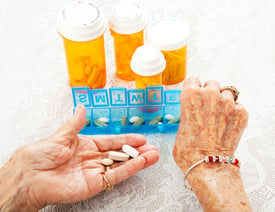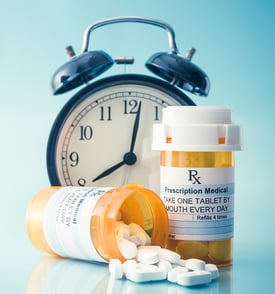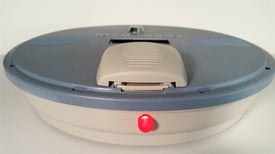
In the medical world, “non-adherence” is a big issue.
That’s a term for what happens when people don’t take drugs that are prescribed for them. There are a lot of reasons why it happens. Some people think they don’t need medication. Others can’t afford it. And then there are the people who simply forget.
It’s easy to forget your medication, especially when you become so used to it that it becomes like a reflex. Ari Tuckman, a clinical psychologist and author, compares it to the way we essentially drive to and from work on autopilot.
It’s possible to mix up thinking “I need to take my medication” with actually doing it, Tuckman told Psych Central last year.
“This is especially likely with repeated activities where we have a lot of memories of the task [blurring] together,” he said.
Forgetting your medication can have serious consequences. Fortunately, training yourself to remember can be as easy as following these steps.
 1. Use a pillbox or medication dispenser
1. Use a pillbox or medication dispenser
For years, the simplest way to remember to take medication was to organize them into a pillbox, which allows you to arrange all your medication for the week into little daily compartments.
Then came the electronic medication dispenser. These devices dispense medications to patients on a set schedule and can issue reminders when you miss a dose.
 2. Set an alarm
2. Set an alarm
Setting an alarm to go off at the same time each day can serve as a reminder to take your medication. You can use an alarm clock or the alarm on your smartphone. It’s especially useful to use this technique if you have to take medication at a certain time.
3. Make a list
Keep a current list of the medications you take and refer to it each week when you load up your pillbox or medication dispenser. Having this list will be useful if you ever change doctors, as new patient intake forms will ask you about your prescriptions.
4. Do something unusual
Research has shown that by performing some random gesture – snapping your fingers, knocking on a wooden surface – people were better able to remember to carry out repetitive memory tasks, such as taking medication.
 5. Make it a part of your routine
5. Make it a part of your routine
Combine taking your medication with some other activity you do every day, like brushing your teeth. This makes it far more likely that you’ll remember than if you simply try to remember to take your pills at some random point each day.
6. Give yourself a reward
It’s much simpler to remember something pleasant than it is to remember something unpleasant. That’s why you might want to try linking your medication every day with a little reward, like a piece of candy.
7. Keep your pills out in the open
By keeping your medication – or medication dispenser – somewhere that’s easy to see, you’ll make sure that the term “out of sight, out of mind” never applies to your pills.
 8. Ask for help
8. Ask for help
Enlist a loved one to help you remember, whether that means your spouse offering a friendly reminder each morning or having one of your kids or a friend call you up each day.
Marx Medical is ready to help as well. Our medication dispensers automatically dispense pills up to four times a day. They also come with monitoring that transmits compliance data to a data center.
That way, if you – or a loved one – misses a dose, we can notify you or your caregiver to ensure that you take your medication.
 We provide medication dispensers through all three managed care organizations under Pennsylvania’s Community Health Choices system: Keystone First, PA Health and Wellness and UPMC. Contact us today to learn how we can make sure you keep on top of taking your medication.
We provide medication dispensers through all three managed care organizations under Pennsylvania’s Community Health Choices system: Keystone First, PA Health and Wellness and UPMC. Contact us today to learn how we can make sure you keep on top of taking your medication.

